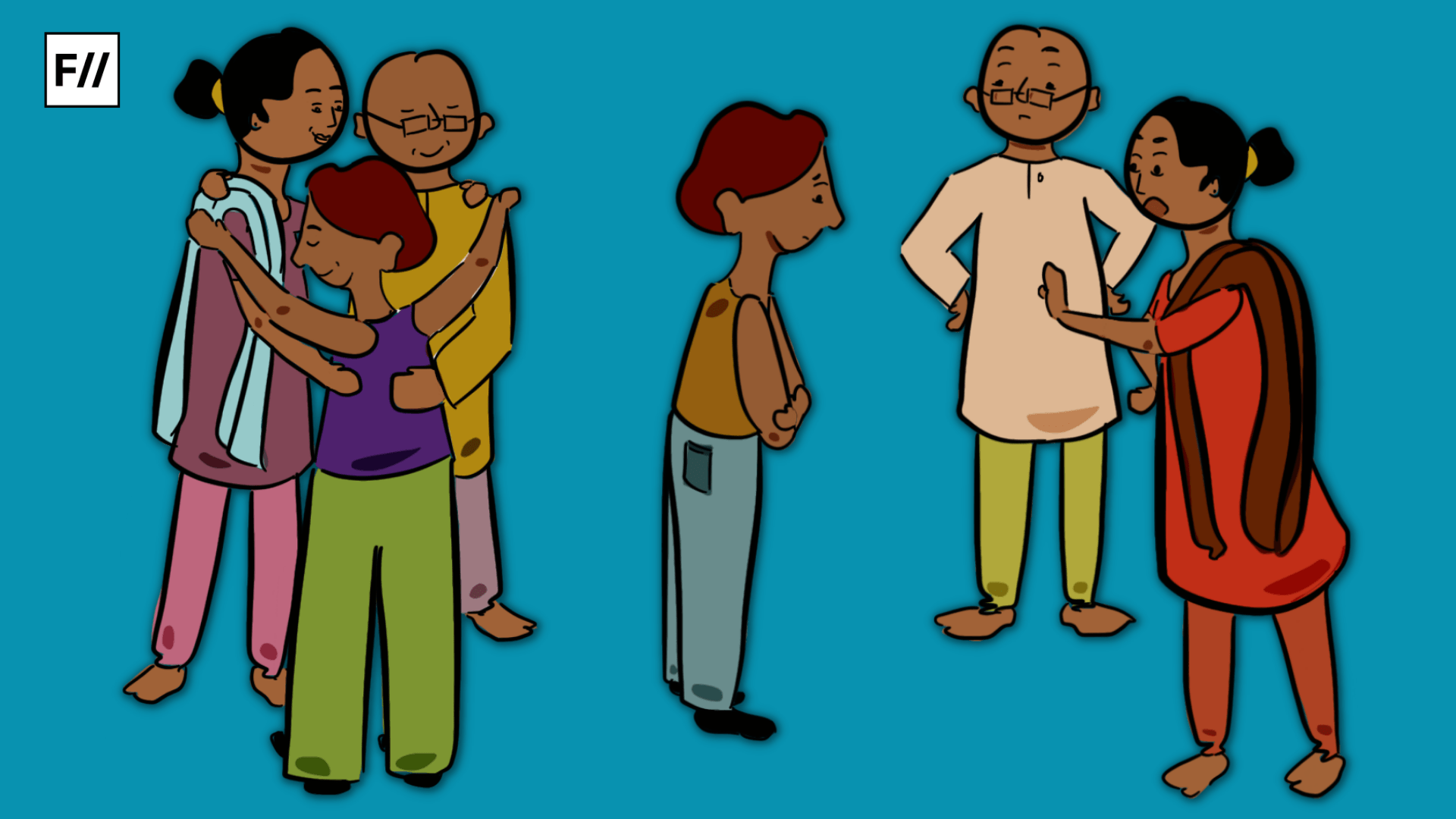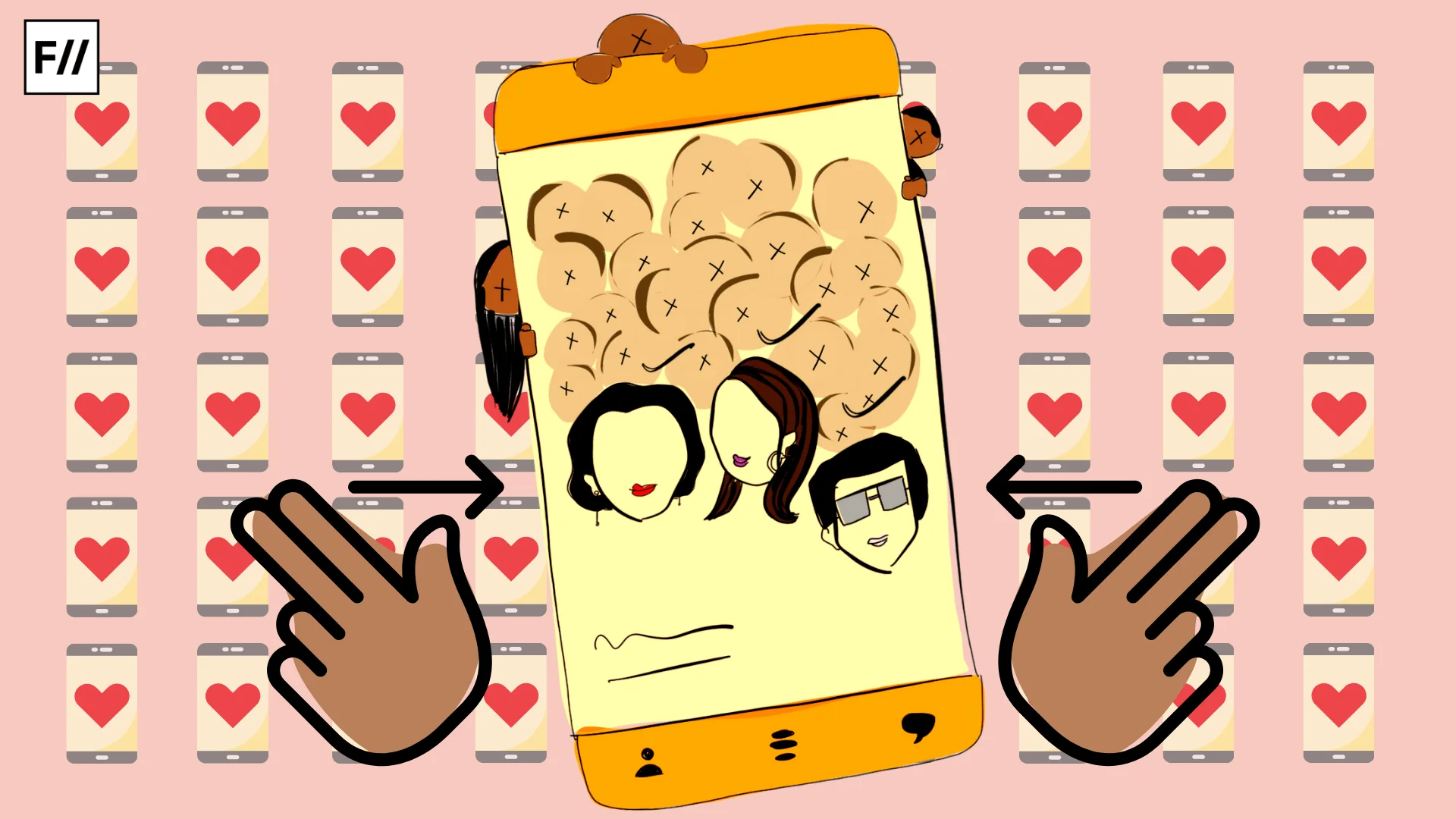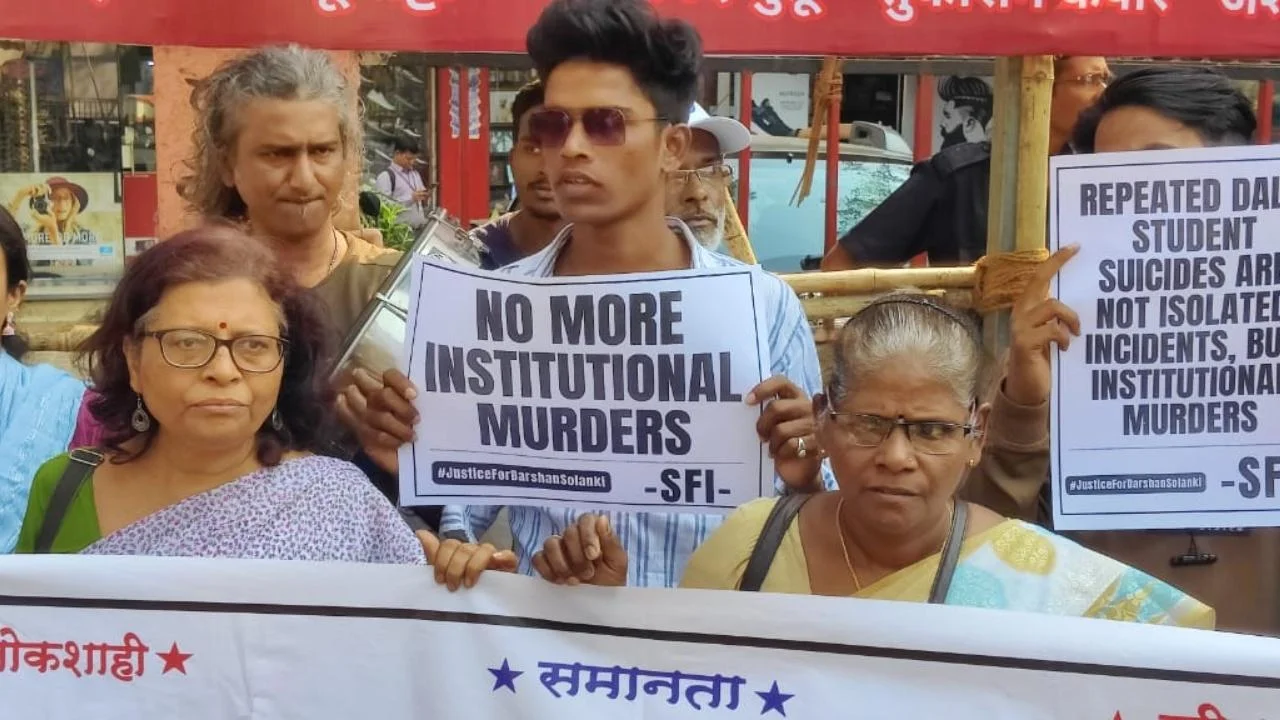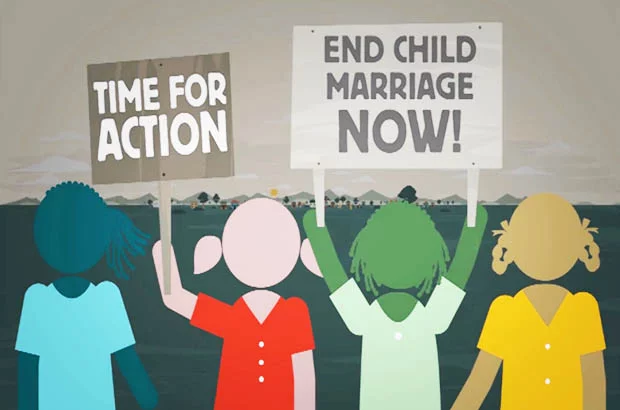Editor’s Note: FII’s #MoodOfTheMonth for September, 2021 is Parenthood. We invite submissions on the many layers of being parents, having parents and navigating the social norms of parenting throughout the month. If you’d like to contribute, kindly email your articles to sukanya@feminisminindia.com
Parental upbringing that involves corporal punishment is “love”- a lie most parents and the society feed into the minds of children. This stems from the patriarchal, proprietary notions of parenting where parents always put themselves on a pedestal and children are expected to accept this power dynamic. Domination by establishing upper hand is often the cornerstone of this family hierarchy.
American author, professor and feminist activist Gloria Jean Watkins, more popularly known by her pen name bell hooks, has critiqued this power dynamics in her work, citing that it often leads to parental abuse. A parent’s assertive superiority rejects a child’s autonomy and even fails to recognise their rights. Hence, coercive measures in parenting become detrimental to a child’s growth.
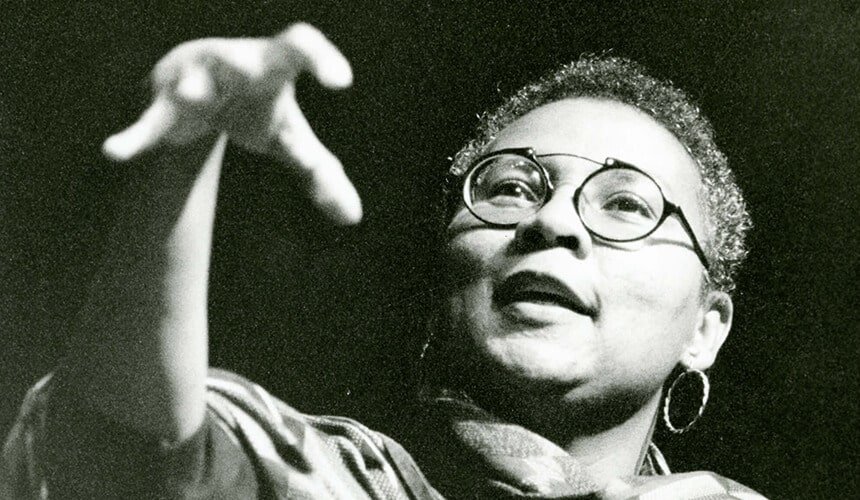
Liberative parenting ideologies counter such forms of parenting in a heteropatriarchy. The parenting philosophy of bell hooks focuses on liberating children by allowing them to establish their agency in a child-parent relationship. She has put forth two significant aspects of liberative parenting in her books: revolutionary parenting and feminist parenting.
While the former talks about children’s rights to effective child care and rejects the societal onus that lies with women solely to provide care, the latter talks about eliminating sexism in parental upbringing. Hence, according to bell hooks, liberative parenting is the way to go to sustain a healthy, nurturing child-parent relationship.
Love does not abuse: Understanding love in child-parent relationships
In ‘All About Love: New Visions’ published in 1999, bell hooks talks about the various aspects of love in different layers. Even though essentially a book on ‘love’, she also explores the opposite of love. She comments on our preconceived notions about love and also concurrently examines the consequences of love’s absence in life.
In this book, bell hooks stresses on the meaningfulness of ‘love’. To understand her parenting philosophy, it is important to contextualise her feminist interpretation of what love is and what it is not. It is important to notice how she distinguishes love from lovelessness.
Hooks asserts justice as an indispensable part of love. How does one ensure justice in love to children? By acknowledging their political and civil rights. Parents are accountable for the life they procreate but their children do not automatically become their property. It is in the best interest of a child to recognise their autonomy and let them voice out their opinions. This will culminate in breaking the problematic structural hierarchies that persist in child-parent relationships
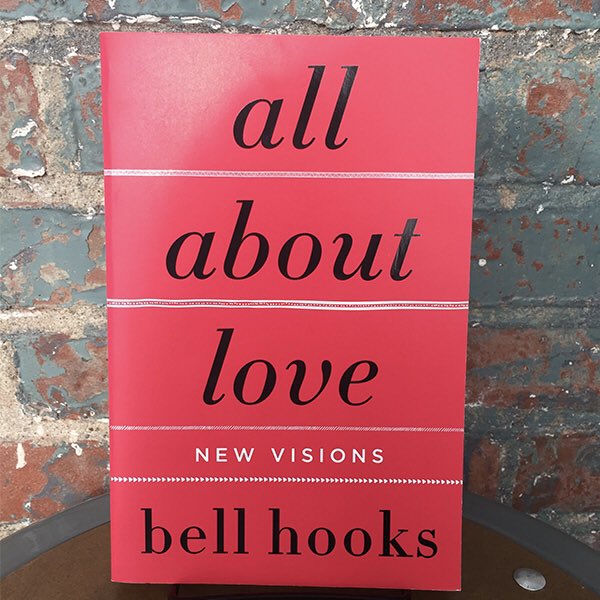
We learn to perceive love since childhood. From being physically held by a loved one at a very young age, we learn to understand the nitty-gritties of love from our parents. They are the guardians who guide us in some way or another but along the way, they often feed us lies. In a child-parent equation, the child is mostly looked down upon.
Disciplining, subsequently followed by punishments, no matter how harsh they are, is always justified under the garb of “love”. This is “for your own good” and “I’m doing this because I love you”- are the most common statements fed to children by parents in attempts to normalise corporeal punishment and abuse.
bell hooks describes the home, be it functional or dysfunctional, as “the original school of love” and love simply as a “good feeling”. But the coercive measures adopted by parents to discipline children create nothing but confusion and conflicts in their minds. Their parent’s abusive behaviour makes the child question the meaning of love.
Also read: Abraham Maslow And Indian Parenting: Does Every Parent Deserve A Child?

In ‘All About Love: New Visions‘, bell hooks mentions “cathexis”, the act of investing emotions and feelings in people who truly matter in our lives. She says, “We all know how often individuals feeling connected to someone through the process of cathecting insist that they love the other person even if they are hurting or neglecting them. Since their feeling is that of cathexis, they insist what they feel is love.”
Hooks precisely distinguishes love from cathexis. She argues that love does not abuse. Parents tend to overlook the fact that abuse and neglect cannot exist along with love. bell hooks has debunked this “social myth” by stating, “Abuse and neglect negate love. Care and affirmation, the opposite of abuse and humiliation, are the foundation of love.”
Justice is an indispensable part of love
Parents become the oppressor in the process of inflicting harsh power dynamics and punishment on the children. Gaslighting children to believe that cruel and bitter punishment is a part of genuine love has become commonplace in our culture. Time and again, bell hooks has challenged these notions of parenting in her work.
Hooks asserts justice as an indispensable part of love. How does one ensure justice in love to children? By acknowledging their political and civil rights. Parents are accountable for the life they procreate but their children do not automatically become their property. It is in the best interest of a child to recognise their autonomy and let them voice out their opinions. This will culminate in breaking the problematic structural hierarchies that persist in child-parent relationships.
Power, control and domination, when exerted in parental upbringing creates a toxic culture of abuse. Bell Hooks rightly puts the onus on adults to defend the rights of children. This responsibility lies with all adults who engage with children. To foster a more loving, empathetic culture, every adult needs to protect and safeguard children’s autonomy. Children rely on us and learn from us about love, personal autonomy and power hierarchies. We must strive to build a secure, loving world for them to live in

Domination in parental upbringing counters a child’s rights. It not only fails to recognise their civil rights but also fails to create a loving, nurturing, safe space for them within the family. Hooks find this to be deeply rooted in patriarchal thinking. She says, “We have all been socialised to embrace patriarchal thinking, to embrace an ethics of domination which says the powerful have the right to rule over the powerless and can use any means to subordinate them.” The way to manifest true love in any relationship is through cooperation and partnership.
bell hooks urges parents, guardians and caretakers to fight against sexism. She does not fail to simultaneously criticise women for preserving patriarchy in parenting through repetition of conditioned patterns. Considered as the “primary parental caregivers” and being the biggest victims of patriarchy themselves, mothers end up passing the same traditional mandates on to their children.

She asserts that men must play an equal part in parenting and child care, like their female counterparts. She asks them to discard sexism and practice ‘feminist parenting’. The onus of liberative parenting lies on all parenting figures, irrespective of gender.
Power, control and domination, when exerted in parental upbringing creates a toxic culture of abuse. bell hooks rightly puts the onus on adults to defend the rights of children. This responsibility lies with all adults who engage with children. To foster a more loving, empathetic culture, every adult needs to protect and safeguard children’s autonomy. Children rely on us and learn from us about love, personal autonomy and power hierarchies. We must strive to build a secure, loving world for them to live in.
Also read: The Lives Of The Adults Subjected To Parental Abuse As Kids
Featured Image: Ritika Banerjee for Feminism In India
About the author(s)
Rohini Ghosh is an aspiring journalist and a postgraduate Mass Communication student at St. Xavier's University, Kolkata. An intersectional, queer feminist at heart, she is deeply interested in gender and social issues
